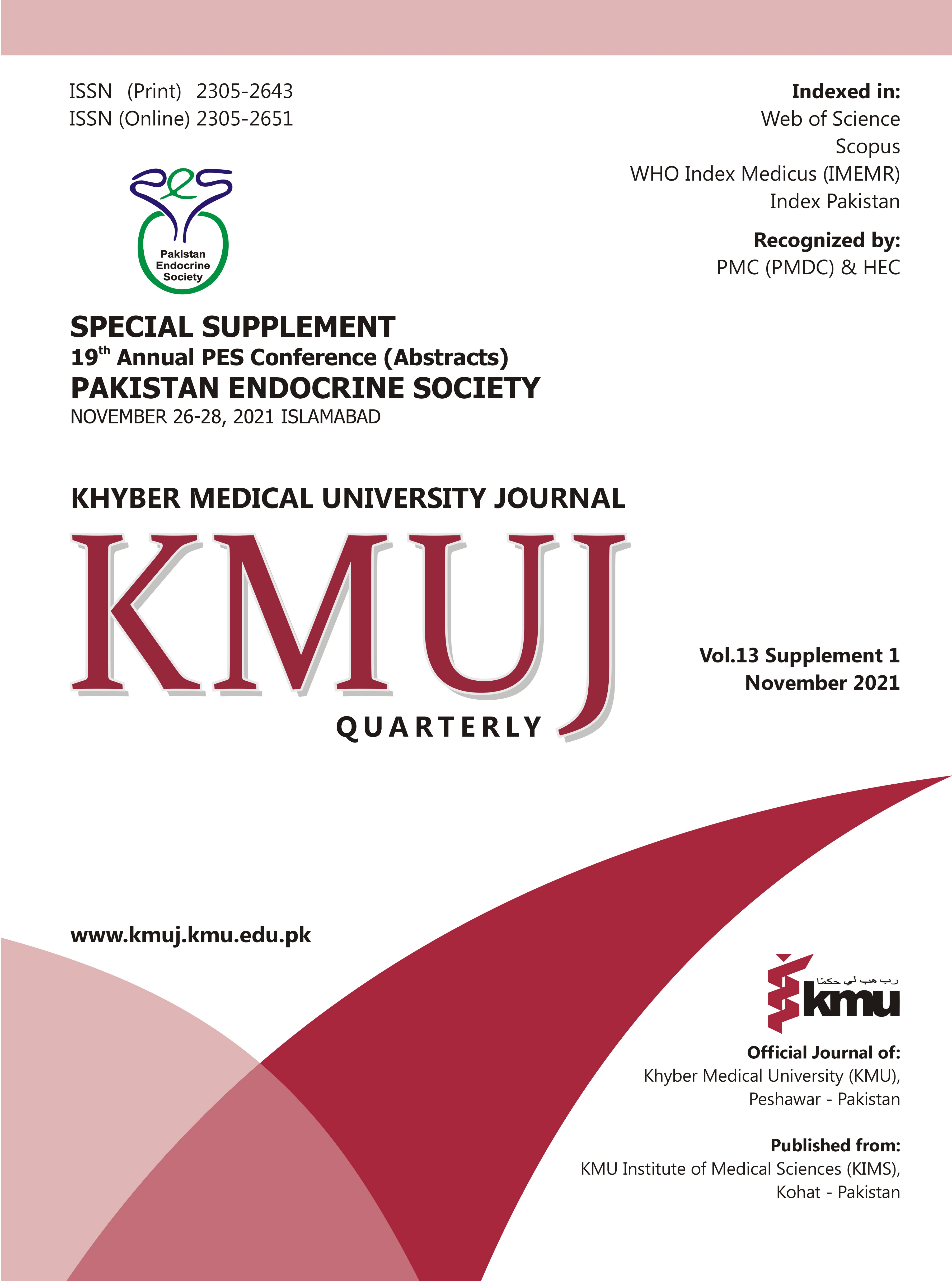FUNCTIONAL PITUITARY GONADOTROPHIC ADENOMA IN MALE PATIENTS: CASE REPORTS
Main Article Content
Abstract
INTRODUCTION: Pituitary gonadotrophic adenomas (FGA) are common but only minority of them secrete Luteinizing hormone (LH) and Follicle Stimulating hormone (FSH). These hormones are biologically inactive as they do not affect the secretion of sex hormones. Few case reports showed high testosterone/estrogen levels with elevated or normal LH and FSH.
CASE DESCRIPTION: We report two cases aging 61 years and 52 years, presented with visual disturbance and headache at Aga Khan University Hospital, with gradual onset of symptoms over months with no history of weight change, broadening of hands or abdominal striae. Examination revealed bitemporal hemianopia, normal vitals and testicular sizes.
Case 1: Investigations revealed elevated FSH [36.66 mIU/ml (Normal=1.4-15.4)], testosterone [952.7 mlU/ml (Normal=193-740)], high normal LH [7.09 mlU/ml (Normal=1.2-7.8)], insulin-like-growth factor 1 (IGF-1) [34 ng/ml (Normal=54.6-185.7), free-thyroxine (FT4) [0.69 ng/dl (Normal=0.89-1.76)], prolactin [12.4 ng/ml (Normal=3-14.7)] and 8AM-cortisol [2.6 ug/dl (Normal=4.3-22.4)].
Case 2: Investigations revealed high normal FSH of 13.61 mIU/mL and high testosterone level of >1500 ng/dL but normal LH 4.45 mlU/mL, 8AM-cortisol=12.60 ug/dl, FT4=0.88 ng/dl and prolactin=36.80 ng/ml.
Magnetic resonance imaging brain revealed mass lesion measuring 27.5×25.4×3 mm (case-1) and 45×39 mm (case-2) arising from pituitary gland and extending in to surround structures.
Thyroxine and steroids were started for case 1 preoperatively. Both patienst underwent transsphenoidal resection of tumor. Postoperatively, a significant decrease in testosterone, FSH and LH level and resolution of symptoms were observed.
CONCLUSION: FGA should be considered in presence of elevated testosterone/estrogen and normal or elevated FSH/LH. Early diagnosis leads to a better outcome.
Article Details
Work published in KMUJ is licensed under a
Creative Commons Attribution 4.0 License
Authors are permitted and encouraged to post their work online (e.g., in institutional repositories or on their website) prior to and during the submission process, as it can lead to productive exchanges, as well as earlier and greater citation of published work.
(e.g., in institutional repositories or on their website) prior to and during the submission process, as it can lead to productive exchanges, as well as earlier and greater citation of published work.
